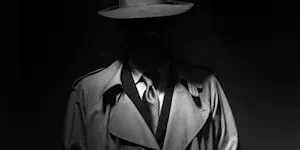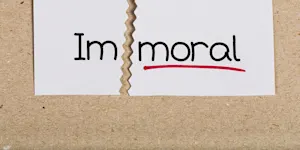What Makes This Word Tick
"Pseudonym" is a charming word with an air of mystery, often linked with writers who prefer a cloak of anonymity. It’s a nom de plume, a borrowed name that lets creativity roam free without the constraints of a real identity.
If Pseudonym Were a Person…
Picture an enigmatic figure with an almost detective-like allure, perhaps wearing a classic trench coat and fedora. This character loves a good secret and considers altering reality an art form. They might just be scribbling notes in a café under a different name.
How This Word Has Changed Over Time
"Pseudonym" hasn’t strayed far from its original path. Rooted in writing and artistry, it once stood more solemn, now it’s dipped into the digital age where every screen name or username carries a hint of pseudonymous tradition.
Old Sayings and Proverbs That Use Pseudonym
While old proverbs don’t quite call upon "pseudonym," the sentiment lurks in phrases like "A rose by any other name would smell as sweet," hinting at the essence beneath a borrowed identity.
Surprising Facts About Pseudonym
Did you know that some of the world’s greatest literary works were penned under pseudonyms? Famous examples include George Eliot (Mary Ann Evans) and Mark Twain (Samuel Clemens), who chose to veil their true selves for a dash of creative freedom.
Out and About With This Word
In today’s world, "pseudonym" dances through the world of social media, where influencers and commenters alike adopt alternate monikers. It’s also a trusty companion in the world of online gaming.
Pop Culture Moments Where Pseudonym Was Used
J.K. Rowling spun a tale of intrigue when it was revealed she wrote "The Cuckoo’s Calling" under the pseudonym Robert Galbraith. It was a power move that spotlighted the word in headline after headline.
The Word in Literature
"Pseudonym" fits snugly in narratives involving secret identities and hidden agendas. It pairs well with thrillers, mysteries, and even romantic escapades, serving as a trusty plot companion.
Moments in History with Pseudonym
During World War II, pseudonyms were more than literary tools; resistance fighters often adopted fake names to obscure their identities. This veiled naming provided protection and was crucial to their clandestine operations.
This Word Around the World
Around the globe, "pseudonym" is embraced by writers, from Japan’s kakekotoba (pen names) to Russia’s literary circles. It maintains a universal essence, highlighting humanity’s shared love for mystery and reinvention.
Where Does It Come From?
"Pseudonym" finds its etymological roots in the Greek words "pseudo," meaning false, and "onyma," meaning name. A delightful nod to ancient linguistic creativity!
How People Misuse This Word
Some use "pseudonym" to describe any nickname or abbreviation, missing its specific tie to artistry and anonymity in writing. It's not just any old alias!
Words It’s Often Confused With
Alias: Often used for nicknames or false names, but not necessarily tied to writing.
Pen Name: Specifically refers to authors, but is synonymous.
Moniker: A general term for a name or nickname, not strictly for pseudonymous contexts.
Additional Synonyms and Antonyms
Synonyms for "pseudonym" include pen name, alias, and nom de plume. Antonyms are harder to pin down but might include real name or true identity.
Want to Try It Out in a Sentence?
Agatha Christie famously wrote romance novels under the pseudonym Mary Westmacott, surprising fans with her literary versatility.
















